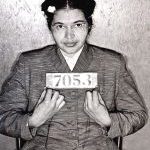 To examine American policy in the Middle East is to reveal the rationality of US support for Israel. A proxy state, Israel aids America’s longstanding effort to control the world by controlling oil.
To examine American policy in the Middle East is to reveal the rationality of US support for Israel. A proxy state, Israel aids America’s longstanding effort to control the world by controlling oil.
A 1945 State Department memo pointed out that Saudi “oil resources constitute a stupendous source of strategic power, and one of the great material prizes in world history.” That same year, President Roosevelt — who had established a close bond with Saudi Arabia — wrote to King Ibn Saud, assuring him that the US would take no hostile action against Arab nations and would not back the formation of a Jewish state without first consulting him.
Roosevelt died a week later, and his replacement, Harry Truman, was also reluctant to side squarely with the Zionist cause. But in 1947 — here it seems AIPAC’s forbearers had an impact — Truman supported a UN partition plan that called for the creation of a majority Jewish state covering 56.47% of “Mandatory Palestinian.” Truman faced dissent from the State Department, which feared that such a stance would threaten the country’s core interests…
So the American interest in controlling the Middle East’s economic resources — and preventing other countries from doing so — was clear; unclear was whether American support for a Jewish state served that interest.
Resistance to Zionism in the US political establishment began to melt away with Israel’s victory — and land grab — in 1948. Its strength impressed officials like Air Force Chief of Staff Hoyt Vandenberg, who wrote in a memo that “the power balance in the Near and Middle East has been radically altered,” and that Israel “has demonstrated by force of arms its right to be considered the military power next after Turkey.” He concluded that “as the result of its support to Israel, the United States might now gain strategic advantages from the new political situation.”
Still, US government support was relatively tempered — it gave its ally virtually no military assistance in the fifties — until Israel’s next big military victory, in 1967. Arab nationalism — particularly in the form of Egyptian President Gamal Abdel Nasser — threatened American hegemony in the region, as did the Soviet Union, which backed Egypt and Syria in the war. By defeating a coalition led by Egypt, Israel performed a valuable service for the United States (and for Saudi Arabia, which was fighting a proxy war against Egypt in Yemen.)
It’s widely accepted that the Six-Day War birthed the special relationship between Israel and the United States. No less significant, however, was Black September — the 1970–71 civil war in Jordan, which became another proxy battle in the Cold War. Secretary of State Henry Kissinger would call it “a test of our capacity to control events in the region.”
—David Mizner
It’s Not Just the Lobby





